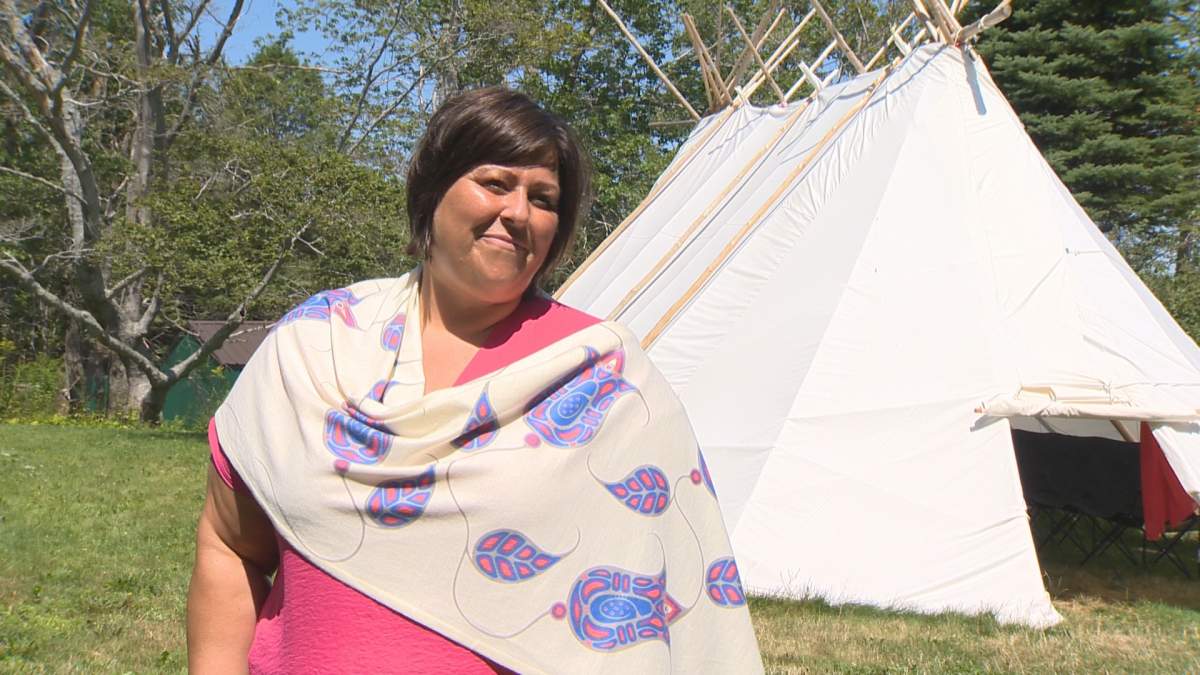The National Inquiry into Missing and Murdered Indigenous Women and Girls has begun their Nova Scotia “community visits” as they continue to plan for the upcoming community hearing to be held later this year.

Terrellyn Fearn, the inquiry’s director of health, said members will be working not only with Indigenous families and survivors but also local stakeholders including grassroots organizations, women’s groups and levels of government to “ensure we’re working together” so that the hearings are a success.
Fearn said their first day in Halifax, Monday, the inquiry was invited to the ceremony by the Mi’kmaq Women’s Leadership Network. She said attending the ceremony helped ground them to what their purpose is.
‘Families and survivors are at the centre’
READ MORE: Missing, murdered Indigenous women inquiry makes N.S. ‘visits’ as it seeks fresh start
“We’re here to work collaboratively and it really is about the families and survivors,” Fearn said in an interview with Global News. “So how can we all come together in a good way, ground ourselves in a good way to ensure that we’re moving ahead in a good way with them in mind.
“Families and survivors are at the centre of this whole process.”
Following their visit in Halifax Tuesday, the commission is visiting Membertou First Nation Wednesday and then heading to Millbrook First Nation. After these visits, the community relations team will announce where they’ll head next in Nova Scotia.
All the visits in the country are a lead up to the nine community hearings starting this fall.
The commission has faced questions from family members concerned about the process, which is expected to take at least two years and cost $53.8 million. Some family members have even called for the commission to start from scratch, citing commissioner Marilyn Poitras’ resignation last month.

Get daily National news
READ MORE: Missing and murdered indigenous women inquiry executive director resigns
Some Aboriginal leaders have also argued the inquiry has not put families first.
Fearn, herself a member of the Glooscap First Nation in Nova Scotia’s Annapolis Valley, said these meetings are to address the concerns.
“This visit here in Nova Scotia is really illustrating how we’re doing things in a different way,” she said. “We know that to really provide opportunities for families and survivors to engage in the inquiry process that we need to come to them. We need to sit at their kitchen tables, we need to visit with them, we need to provide time to build trust and support and have their involvement in understanding how they would like to see this process.”
‘Document the truth’
Denise Pictou-Maloney, the community relations liaison officer for the inquiry, said she became involved because it provides families, including her own, a place to have their voices heard.
“It was able to document the truth in one place that we knew could make a difference in bringing attention to why this travesty is happening in our famlies and in our country and why our number of missing and murdered Indigenous women are so high,” she said.
Pictou-Maloney is also the daughter of Annie Mae Pictou-Aquash, a native rights advocate who was murdered in 1975.
She said her own experience fighting for justice for her mother could be used to help the commission.
Calling it “information-sharing”, Pictou-Maloney said the inquiry is about letting families know they guide the process and the commission wants to know what supports they need, from cultural assistance to health.
“This is not a pleasant process for a lot of people, it is stressful, but these families, and I know this through my own personal experience, live with this every day,” Pictou-Maloney said.
A change in approach
The constructive criticism they’ve received has been helpful, Fearn said, and she acknowledges the inquiry needs to make some internal changes in their approach.
She said the inquiry has seen major growth in the last month in the number of people registered — on Tuesday she told Global News they had received about 550 registrants.
“That’s a real testament to the change in our community engagement strategy,” Fearn said.
WATCH: Global News coverage
Journalists have been asked to stay away from the sessions, being held at undisclosed locations.
READ MORE: MMIW inquiry ‘having trouble getting off the ground’: Saskatchewan commissioner
Fearn said if people want to become involved in the inquiry, they can contact Pictou-Maloney for more information.
—With files from The Canadian Press















Comments